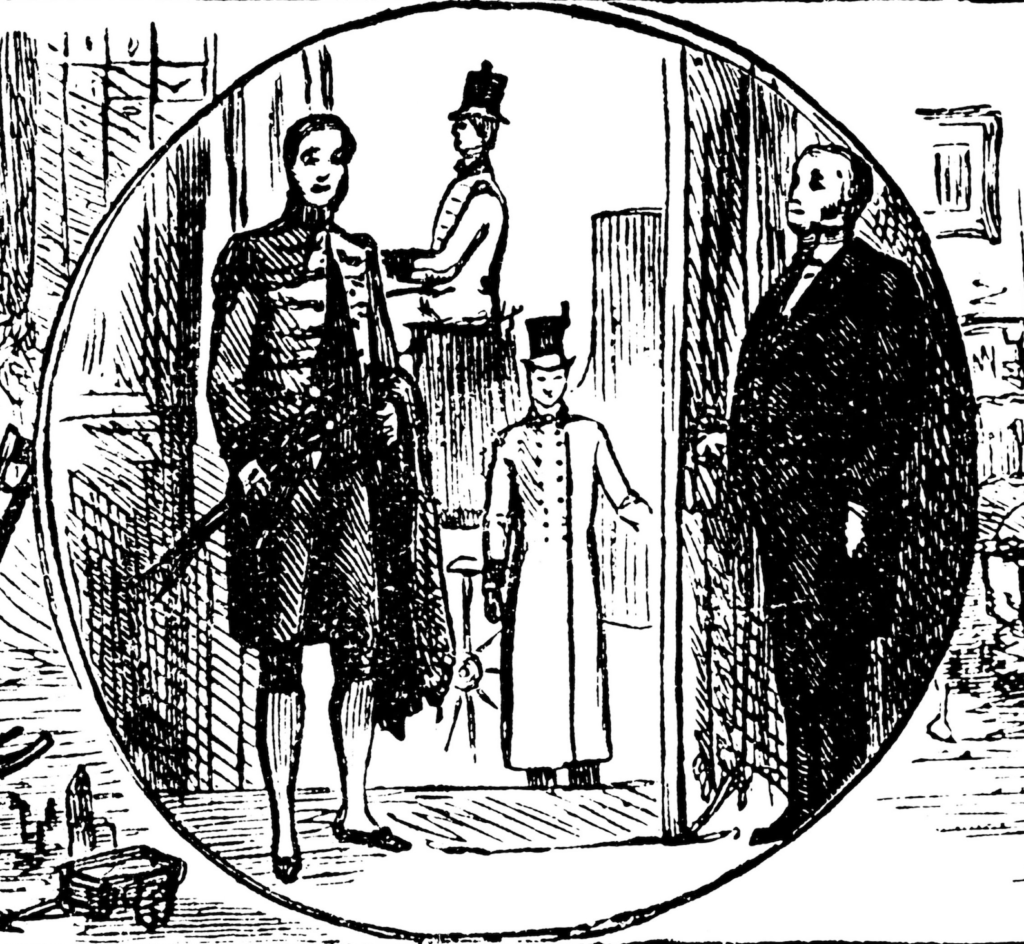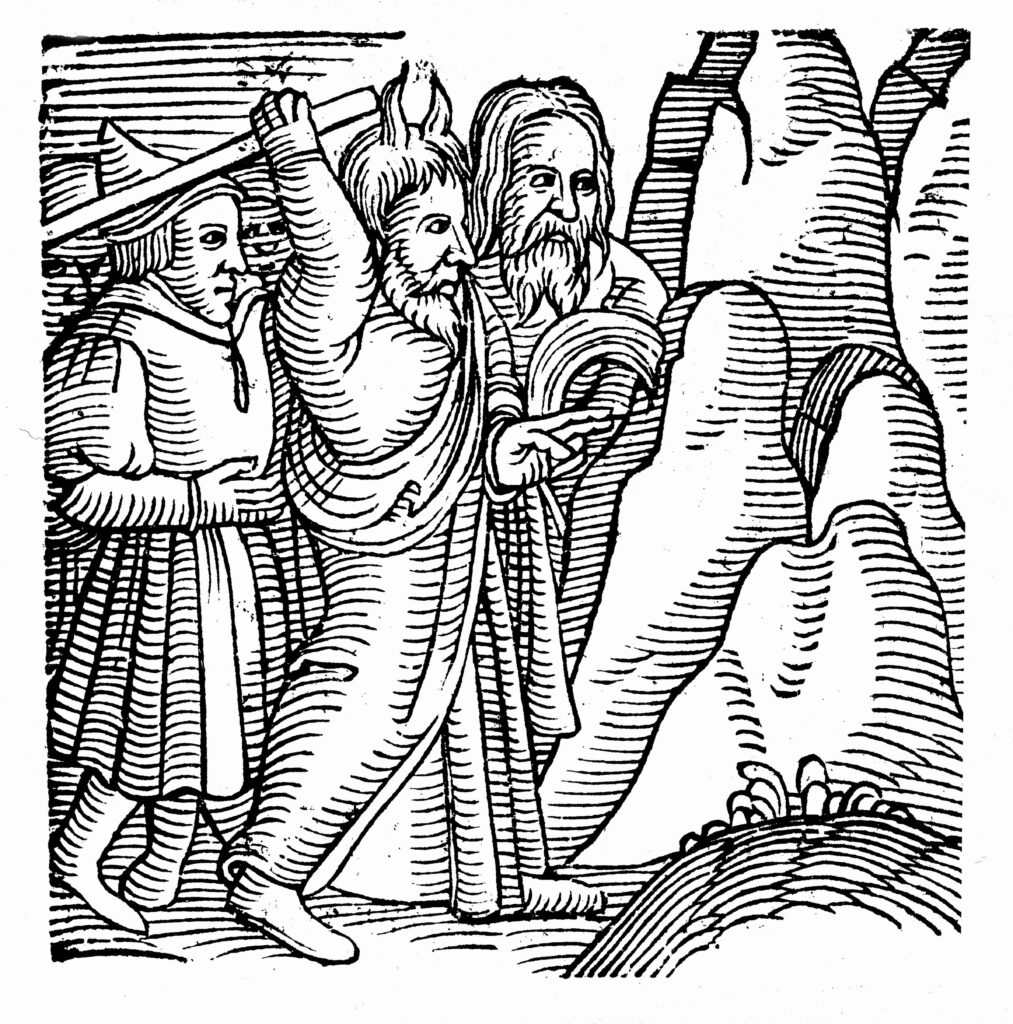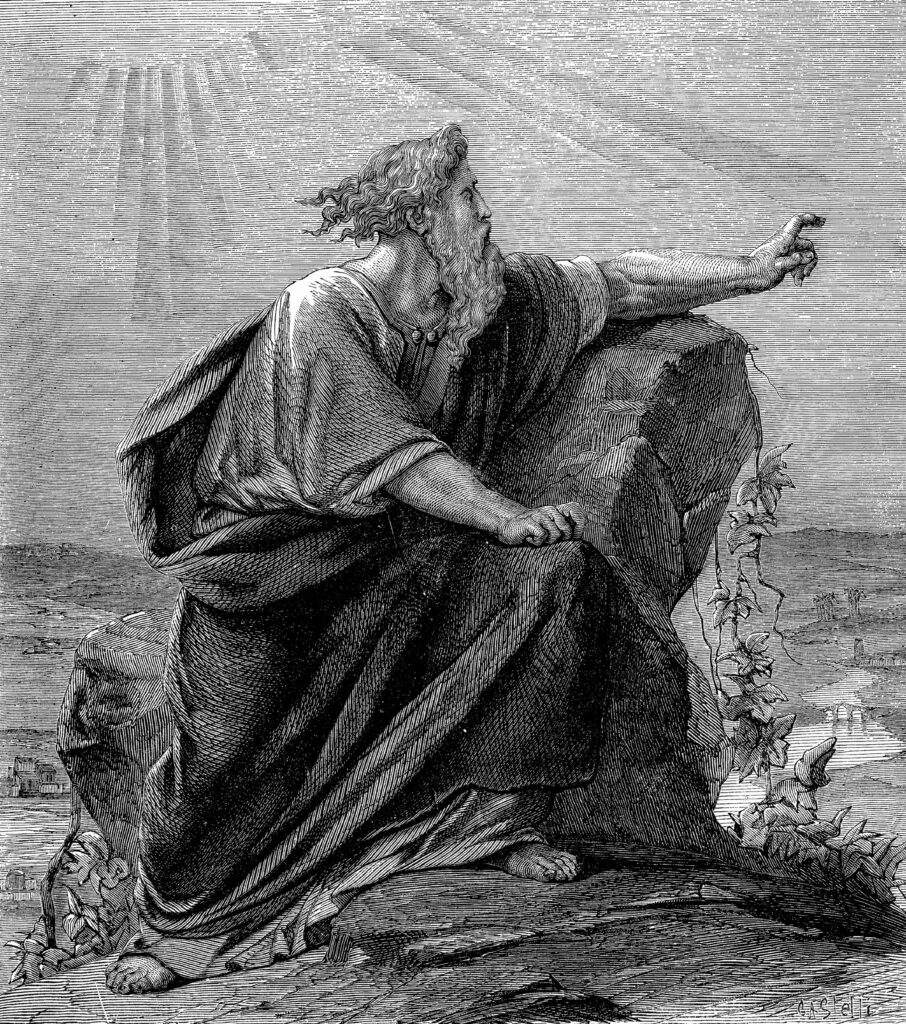If Moses Used A.I.
This week’s Torah portion is called Ki Tavo, named from the opening words of the reading, which mean, “When you enter”. In this section of the Torah, from the Book of Deuteronomy, Moses is continuing his summary to the Israelites of how they are to be, as new inhabitants of the land which God had promised them as their inheritance.
The speech is eloquent, at least the the words that have been passed down to us which are attributed to Moses are. But, also recall, that much earlier, in Exodus 4:10, we read that Moses is not so eloquent of speech,
“Moshe said to YHWH:
Please, my Lord,
no man of words am I,
not from yesterday, not from the day-before, not [even] since you have spoken to your servant,
for heavy of mouth and heavy of tongue am I!”*
God’s anger flares, and He reminds Moses who created humans and their abilities in the first place. After more assertions from Moses that he cannot speak well, God points to his brother Aaron, and tells Moses,
“You shall speak to him,
you shall put the words in his mouth!
I myself will be with your mouth and with his mouth,
and will instruct you [both] as to what you shall do.”* text quotes: The Schocken Bible, Everett Fox, 1995
This dialogue caused me to think about AI. While recovering from the exertions of my trip to Taiwan (you may have noticed in the photos of the previous post how bloated I became there), I have been watching a lot of TV. I like retro TV shows the best.
On one particular streaming station, almost all of the commercials are promoting an A.I. writing assistance app. Over and over again, my resting brain took in the peppy and chipper rolling out of all the amazing tasks this app can do: for you, for your business, for your teamwork.
As a writer and writing educator, though, I took offence to this shortcut tool, seeing it as just another ‘hack’ to enable people to shortcut and bypass using our brains’ own sublime social and technical capabilities. AI can certainly be a communication boon or even lifeline to those who have learning and developmental disabilities. Going to school provides an opportunity to work hard and develop strong social and communication skills, allowing us to not only communicate well at work, but also become independent and capable adults socially.
I watched the commercials with trepidation. In one version, three young women sat in a room, and one of them had an idea for a product to manufacture and market; we saw her computer’s text bubble to her team about it. Her colleagues, though, were writing text bubble responses with phrases and words that were cutting and crude: “You’ll have to fix that container, it won’t work.” Certainly not what any high school or MBA educator would have approved of!
But, thankfully, our commercial showed us how these teamsters could tell the AI app to make their phrases more friendly or supportive, even choosing the wording a gradient of softer or harder wording. In the last scene, the original brainstormer is opening a box with her original idea product, now gone to market, thanks to the wonderful, supportive messages from her development team.
Well, at least these colleagues recognized that their terse inner thoughts and outgoing phraseology were out of place for work. These were okay for an after-hours dish-session about their esteemed colleague, but not okay for getting the work done. With the aid of the AI app, though, they bypassed their real, dishy, thoughts and let a robot fix it for them. Sort of like the butler Jeeves getting his master Wooster out of yet another malaprop faux pas. But, I wondered, what happens when they have to meet face-to-face, say, around a conference table; or meet with clients to demonstrate their product line and have a live conversation? Where will the AI app be then?
There is always a risk involved when communicating information second- or third-hand. Suppose God handed Moses the AI app to get the job done, instead of pairing him up with his brother Aaron?
Let’s look at the difference:
AI 
- Artificial intelligence
- Words generated by algorithm
- Grammar and etiquette rules
- Incapable of empathy
- Has no agendas or purpose
Aaron 
- Human intelligence
- Words provided by Moses to Aaron
- Divine inspiration
- In loving, supportive relationship
- Has inspired purpose and intentions
I could go on with these comparisons between contracting to communicate with AI vs Moses enlisting his brother Aaron to speak to the Israelites, but this list has the essential points on it.
Think about what the most important job is for a Prophet: Leader of the People? Rule-maker? Rule Enforcer? Soothsayer? Seer? Smiter of Sinners?
My answer: Above all else, a Prophet is a Role Model. Yes, A Role Model. This is the person who models not what the directives are for the people; but also how to be a person. We sometimes make excuses for ourselves when we miss the mark, and say, “Well, I’m no Moses, after all…” but actually, Moses was an imperfect, flawed person. We just read about his speech impediment.
But, also, he had a very real human personality. He got angry, a lot. Angry with the slave master who beat the Hebrew slaves, with the stubborn Israelites who complained and built the golden calf, and he got angry with God. He was a workaholic, trying to manage the people all by himself, until his father-in-law Jethro told him to delegate his onerous amount of work and appoint judges to offload much of it.
Perhaps your ideas about what a role model is are shifting now. If Moses wasn’t a perfect person, who can we look to!? AI?
Despite being imperfect, Moses was a person, chosen because he had vision and tenacity, and the compassion and strength to take risks to see that his very human sensibilities about right and wrong were fulfilled. When God wanted to destroy the Israelites, Moses interceded (Ex. 32-11). His arguments with God are noted several times. He was fearless in bringing forth his beliefs and willing to negotiate to move things forward.
When it was time to enter the Promised Land, though, Moses was not allowed to enter. Why would this exceptional human being and role model not be allowed to continue on with his inspired leadership? because his mission, to single-mindedly bring the Israelites to the new land, had ended. And, as an exceptional human being and role model, he understood what defined his purpose.
Instead of covering himself with sack cloth and moaning, or berating God, or taking out his anger by harming innocent others or himself, Moses chose to close his relationship with his people by giving them the eloquent and soul-touching Deuteronomic charge and last instructions as they were about to enter the Promised Land.
This is what we learn from our role models: how to live by our truth and vision, no matter who we are; and how to accept closure and find peace at the end.
Tell me, would the words from an A.I. app inspire you this way?











